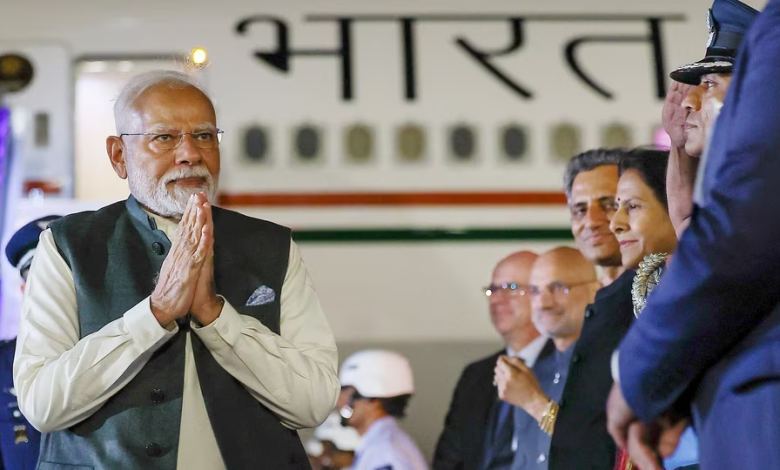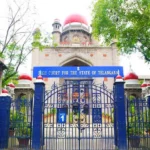New Delhi: Prime Minister Narendra Modi will undertake an official visit to two key nations—the United Kingdom and the Maldives—from July 23 to 26. The foreign tour will begin in London on July 23, where PM Modi will participate in multiple bilateral meetings and events. On July 24, he is scheduled to meet the UK’s new Prime Minister, Sir Keir Starmer, for extensive discussions on bilateral cooperation.
Sources indicate that a major announcement regarding the long-awaited Free Trade Agreement (FTA) between India and the UK may be made during this visit. Amid shifting global trade dynamics and new US tariff policies, this agreement is seen as crucial for both nations. Experts believe it will inject new energy into India-UK trade relations.
High-Level Meeting with King Charles Possible
During his UK visit, PM Modi may also meet King Charles III. Their talks are expected to review progress under the Comprehensive Strategic Partnership (CSP), covering trade, defense, technology, health, education, and climate change. Discussions will also focus on strengthening people-to-people ties between the two countries.
PM Modi as Special Guest at Maldives Independence Day
In the second leg of the tour, PM Modi will visit the Maldives on July 25–26 at the special invitation of President Dr. Mohamed Muizzu. On July 26, he will attend the Maldives’ 60th Independence Day celebrations as the chief guest. The visit will include in-depth talks on maritime security, economic cooperation, regional stability, and the SAGAR initiative.
PM Modi’s trip is seen as a significant step in advancing India’s “Neighborhood First” policy and “Vision SAGAR.” It will further strengthen trust, cooperation, and shared interests between India and the Maldives.
United Kingdom
The United Kingdom (UK) is a sovereign country in Northwestern Europe, consisting of England, Scotland, Wales, and Northern Ireland. With a rich history spanning centuries, it was once the center of the vast British Empire and played a major role in global trade, industry, and politics. Today, the UK is known for its iconic landmarks, such as Big Ben and Stonehenge, as well as its influential cultural contributions in literature, music, and science.
Maldives
The Maldives is a tropical archipelago in the Indian Ocean, renowned for its stunning white-sand beaches, crystal-clear waters, and vibrant coral reefs. Historically, it was a key trading hub influenced by South Asian, Arab, and African cultures, and it became a Muslim sultanate in the 12th century before gaining independence from British protection in 1965. Today, it is a popular luxury travel destination and faces challenges like climate change due to its low-lying geography.
London
London is the capital of the United Kingdom and one of the world’s most historic cities, founded by the Romans nearly 2,000 years ago as *Londinium*. Known for iconic landmarks like the Tower of London, Buckingham Palace, and the Houses of Parliament, it has been a center of politics, culture, and commerce for centuries. Today, it remains a vibrant global metropolis, blending rich history with modern diversity.
Free Trade Agreement (FTA)
The **Free Trade Agreement (FTA)** is a pact between two or more countries to reduce or eliminate trade barriers, such as tariffs and quotas, to promote economic cooperation and growth. Historically, FTAs have played a key role in globalization, with notable examples like **NAFTA (now USMCA)** and the **EU’s single market** shaping international trade. These agreements aim to boost investment, streamline regulations, and strengthen political ties between participating nations.
King Charles III
King Charles III is the current monarch of the United Kingdom and the Commonwealth realms, ascending to the throne on September 8, 2022, following the death of his mother, Queen Elizabeth II. Born on November 14, 1948, as Charles Philip Arthur George, he was the longest-serving heir apparent in British history before becoming king. His reign continues the legacy of the Windsor dynasty, focusing on modernizing the monarchy while addressing issues like climate change and interfaith dialogue.
Comprehensive Strategic Partnership (CSP)
The **Comprehensive Strategic Partnership (CSP)** is a high-level diplomatic framework between nations aimed at deepening cooperation in political, economic, security, and cultural spheres. Often established between major powers or key allies, CSPs signify a stronger commitment than ordinary partnerships, though their specifics vary by agreement. Examples include China’s CSPs with countries like Russia and Vietnam, reflecting long-term collaboration beyond basic trade or diplomacy.
SAGAR initiative
The **SAGAR initiative** (Security and Growth for All in the Region) is an Indian foreign policy framework launched in 2015 to promote maritime cooperation, economic growth, and security in the Indian Ocean region. It emphasizes sustainable development, disaster management, and counter-piracy efforts while strengthening ties with neighboring countries. Rooted in India’s historical connections to the Indian Ocean, SAGAR reflects its commitment to a free, open, and inclusive Indo-Pacific.
Neighborhood First
“Neighborhood First” is a community-focused initiative or local cultural site that emphasizes grassroots engagement, supporting small businesses, and fostering connections among residents. While its specific history may vary by location, it often stems from efforts to revitalize neighborhoods, preserve local heritage, and promote sustainable living. The concept reflects a broader movement toward prioritizing community well-being and collaborative development over large-scale commercialization.






